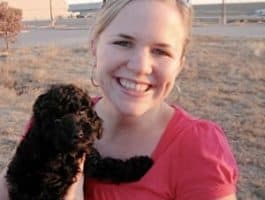
Dating Standards in the Teen Years
Oh, the joys of romantic love! Join us for the broadcast today when one-time daters, Dennis and Barbara Rainey, and their adult children, Samuel and Rebecca (Rainey) Mutz, talk about teen dating.
Show Notes
About the Host
About the Guest
-
Oh, the joys of romantic love! Join us for the broadcast today when one-time daters, Dennis and Barbara Rainey, and their adult children, Samuel and Rebecca (Rainey) Mutz, talk about teen dating.
-
Dave and Ann Wilson
Dave and Ann Wilson are hosts of FamilyLife Today®, FamilyLife’s nationally-syndicated radio program. Dave and Ann have been married for more than 38 years and have spent the last 33 teaching and mentoring couples and parents across the country. They have been featured speakers at FamilyLife’s Weekend to Remember® marriage getaway since 1993 and have also hosted their own marriage conferences across the country. Cofounders of Kensington Church—a national, multicampus church that hosts more than 14,000 visitors every weekend—the Wilsons are the creative force behind DVD teaching series Rock Your Marriage and The Survival Guide To Parenting, as well as authors of the recently released book Vertical Marriage (Zondervan, 2019). Dave is a graduate of the International School of Theology, where he received a Master of Divinity degree. A Ball State University Hall of Fame quarterback, Dave served the Detroit Lions as chaplain for 33 years. Ann attended the University of Kentucky. She has been active alongside Dave in ministry as a speaker, writer, small-group leader, and mentor to countless wives of professional athletes. The Wilsons live in the Detroit area. They have three grown sons, CJ, Austin, and Cody, three daughters-in-law, and a growing number of grandchildren.
-

Dennis and Barbara Rainey
Dennis and Barbara Rainey cofounded FamilyLife®, a ministry of Cru®. Their 43+ years of leadership enabled FamilyLife to grow into a dynamic and vital ministry in more than 109 countries. Together they have spoken at over 150 Weekend to Remember® marriage getaways and authored or co-authored more than 35 books, including best-selling Moments Together for Couples, Staying Close, A Symphony in the Dark, and Barbara’s most recent, Letters to My Daughters: The Art of Being a Wife...more
Rebecca (Rainey) Mutz
Rebecca (Rainey) Mutz and her husband Jake live in Colorado with their children. Besides writing, she loves to cook, bake, decorate, read, and enjoy the beauty of the great outdoors. Rebecca shares openly shares the story of her grief, healing, and hope in regards to her children Molly Ann, Micah William, and two others lost through miscarriage. Jake and Rebecca Mutz hope to use their daughter Molly’s life as a way to share Christ with others and bring glory to God. Rebecca co-authored a boo...moreSamuel Rainey
Samuel Rainey is a professional counselor primarily working with couples, men, and women addressing issues of sexuality, emotional health, relationships, and spirituality. He is the co-Author of So You Want to be a Teenager with Thomas Nelson. He earned his Masters in Counseling Psychology from The Seattle School of Theology and Psychology in Seattle, Washington. When he is not roasting coffee, tending to his garden, or playing golf, he blogs about life process, parenting, and relationships at S...more
Oh, the joys of romantic love!
Dating Standards in the Teen Years
Rebecca: I also had a thing in 7th grade that my parents didn't know about, either, that was forbidden, or whatever. Yeah, he'd call, and we'd see each other in between classes, and, finally, a friend of mine just told me that I needed to break up with him because it was wrong, and she knew it was wrong, and if I didn't, she was going to tell you guys. So I did.
Samuel: That's a good friend.
Bob: This is FamilyLife Today for Friday, June 22nd. Our host is the president of FamilyLife, Dennis Rainey, and I'm Bob Lepine. What can we do, as parents, to help our teenagers navigate the adolescent rapids when the hormones hit?
And welcome to FamilyLife Today, thanks for joining us on the Friday edition. I have to tell you, I remember when I first started to notice Lisa Edelman, I was in the 6th grade. It was kind of a whole new world for me, Dennis. I was just turning 12 years old, and all of a sudden Lisa looked different than she'd ever looked in class before.
Dennis: She used to be a partner to play volleyball with, or tag, on the playground.
Bob: On the monkey bars over there on the Jungle Gym, I liked that, but now, all of a sudden, Lisa was looking differently, and I kind of remember that the world was changing and something was happening that I didn't understand or know that much about, and a whole knew world was dawning for me, and I think we've got a lot of young people today, 12 years old is a little late for them. We're seeing young people 10, 11, and 12 start to pay attention to members of the opposite sex and get headed off into some traps, into some areas, that can be very destructive for them.
Dennis: I've received a lot of letters over the past couple of years from a weekend getaway we designed for moms and their daughters and dads and their sons to talk about the birds and bees and talk about limits and dating with the opposite sex, the whole subject of peer pressure. It's called Passport to Purity weekend, and one of the letters I received, Bob, was just what you said. It was a letter saying, "You know, for those of us on the West Coast, I think going through this Passport to Purity weekend ought to occur maybe between the 5th and 6th grade. Don't wait until the 6th grade to go through this material."
And I think it's for the very reason you're talking about. I think at a younger and younger age, our young people are being exposed to images on TV through music, magazines, that are forcing them to make decisions, unfortunately, many times, that are not the right decisions concerning the opposite sex.
Bob: We've been talking this week about how you can equip your preteen to be ready for many of these issues that are going to face them during the teenage years, and you and your wife Barbara, who also joins us in the studio today – hi, Barbara.
Barbara: Hi, Bob.
Bob: You have written a book together with your son Samuel and your daughter Rebecca.
Dennis: Actually, Samuel and Rebecca have written this book, and we have done it with them.
Bob: You did a little tweaking?
Dennis: Rather than them doing it with us, they've really taken what, hopefully, we did right, and what we taught concerning some of these – well, life's most important decisions as you grow up, and they've put it in a language for young people today that is relevant, and I believe is going to connect in a big way.
Bob: The book is called, "So You Want to be a Teenager," and we've been talking about it this week. Samuel and Rebecca are also in the studio with us this week, and earlier this week, Rebecca, you mentioned that one of the traps that you maybe got closer to than the others was the trap of boys? Is that right?
Rebecca: Yes, that's right.
Bob: Do you remember the first time you started to notice that boys were a little different than you'd thought they were?
Rebecca: Sixth grade.
Bob: Twenty years old?
Dennis: In my Sunday school class?
Rebecca: No, maybe it was 5th grade.
[laughter]
But it wasn't in your class.
Bob: Who was it that first caught your eye?
Rebecca: Do you want to know his name?
Bob: Yeah, I want to know his name.
Rebecca: Caleb Shamlin.
Dennis: Oh, Caleb, yeah.
Samuel: Yeah?
Dennis: Yeah, he's a hunk.
Bob: And so what did you do as a 5th grader to attract Caleb's attention?
Rebecca: I don't even know. I just think it was a fun, we like each other kind of thing. It wasn't – we're dating, we're going out or anything like that. He got me something for Valentine's Day, and that caught my attention.
Dennis: We wouldn't let our sons or daughters go out in the 6th grade or the early teen years.
Bob: No dating allowed?
Barbara: At least they were supposed to.
Dennis: They weren't supposed to – but also, going out, Bob, "going out" means something different than going somewhere. There are a bunch of parents listening to me right now who know exactly what I'm talking about, but the saying, "going out," actually means to kind of be your steady friend, or your steady girlfriend or …
Bob: It's what we used to call "going steady."
Dennis: Right. And you can go steady before you go anywhere.
Samuel: You can't go anywhere in the 6th grade.
Rebecca: Yeah, really, your parents can't take you.
Bob: Samuel, when did you first take not of members of the opposite sex?
Samuel: I think it was in 6th grade.
Bob: So it really is that point of 12 years old. And who was it for you, by the way, as long as we're into true confessions here. Do you remember her name?
Rebecca: Hope they're not listening.
Samuel: I don't. Must not have made that big an impression.
Rebecca: Must not have been important.
Dennis: The thing is, though, we wouldn't let him go out, and we ran across one of his journals, and it turns out that he did go out in junior high with a girl.
Bob: Oh, really? So there was a prohibition against going together with a girl, going out …
Samuel: Yeah.
Bob: And you said, "I'm just going to fly this one under the radar?"
Samuel: Well, they had actually made the rule while I was already going …
Dennis: Oh.
Barbara: So it was retroactive.
[laughter]
Bob: So what was – in junior high, you and this girl decided …
Samuel: Uh-huh, in 7th grade.
Bob: That you were going to be best friends and like each other?
Samuel: Uh-huh, yeah.
Bob: And so did you call each other?
Samuel: Yes, we called each other. We'd meet up in between classes – in between actually 4th period and exchange notes.
Bob: Notes back and forth?
Samuel: And we'd talk on the phone in the evenings, and would hold hands after lunch.
Bob: Really?
Samuel: Oh, yeah.
Bob: Did your parents know that you were exchanging notes and holding hands and that there was a special girl in your life?
Samuel: I don't think so.
Bob: Did you know any of this was going on?
Barbara: I knew that there was a girl that liked him, and I think I knew he kind of liked her, but I didn't know they were going out, and I didn't know they were holding hands.
Bob: You didn't know they were holding hands.
Dennis: Well, we knew …
Barbara: We had all these girls calling our house in the 7th grade. When Samuel hit 7th grade, he was the item in the 7th grade.
Bob: Girls were calling your house?
Dennis: Oh, I'm going to tell you, we had call waiting, Bob, and we had them lined up like airplanes at Atlanta airport. I mean, the phone calls were coming in and, finally, after a few weeks of this, we just put the word out to one of those girls, it is not appropriate for a young lady to pursue a young man the way you are pursuing him. And you know what? The phone calls dried up instantly. The word traveled among the natives out there.
Samuel: And I believe it was shortly then after that I broke up with my girlfriend.
Bob: And, in the meantime, you learned that your parents really didn't want you going out, and so you said, "Oh, okay, I didn't realize that was the rule. I won't do that anymore," right?
Samuel: Probably not.
Bob: Did you continue through junior high and high school to kind of pair off from time to time with a special girl?
Samuel: I did not.
Bob: Rebecca, did you during junior high and high school have some special boyfriends along the way?
Rebecca: Well, I also had a thing in 7th grade that my parents didn't know about, either, that was forbidden, or whatever.
Bob: Really? Holding hands?
Rebecca: Well, I don't really know if we held hands. We probably – yeah, we probably did. But, yeah, he'd call, and we'd see each other in between classes, and, finally, a friend of mine just told me that I needed to break up with him because it was wrong, and she knew it was wrong, and if I didn't, she was going to tell you guys. So I did.
Samuel: That's a good friend.
Bob: Now, the question is, Rebecca thought you didn't know this was going on. Did you know it was going on?
Barbara: Well, it depends on who it was.
Bob: Which guy?
Barbara: Are we going to name names?
Rebecca: It was Matt.
Barbara: Okay, then, I kind of had a suspicion.
Bob: When you have a suspicion as a mom or dad that there is a little pairing off going on in junior high, what do you do?
Barbara: Well, we've just done a lot of watching, a lot of observing, and the thing that's so interesting is that this is another situation where parents are so much smarter than the kids give you credit for, because you're watching these kids, and they're saying, "Oh, he's just a friend," and we're going, "Okay, then how come you don't talk to all the other guys that you're friends with like you're talking to this one guy?" "Well, we're just friends." And so you …
Dennis: Well, I think parents need to have a network of spies.
Bob: A network of spies?
Dennis: Absolutely. I believe it's time for guerrilla warfare when it comes to raising teenagers today and no set of parents raises teenagers by themselves. They've got to have Sunday school teachers, coaches, teachers at school, other parents who are on the lookout and who will rat on them.
Bob: I want to ask Samuel and Rebecca here, you hear your parents talking about this network of spies. If they had been talking about that when you were in the 8th grade, you would have said, "You can trust me. You don't trust me, that's why you want a network of spies."
Samuel: They're reading my journals. How am I supposed to trust them?
Barbara: We did that when you were an adult, by the way.
Bob: When you hear them talking about this network of spies now, do you go, "I think that's probably a good thing for a mom and dad to do?
Samuel: Yeah, I do. I think that if those network of spies weren't intact there would be a lot of things that teenagers would get away with, and I think it's a God-given talent for parents to be able to find out things about their kids.
Barbara: Well, the whole point behind having a network of spies is so that our kids grow up knowing that they can't get away with things, because God sees all, anyway, and so if they grow up thinking that they're pulling the wool over Mom and Dad's eyes, that they're getting away with things and Mom and Dad don't know about it, then they become deluded in their thinking that they are smarter than Mom and Dad. And so, as parents, we want to know when our kids are breaking our rules.
Bob: Rebecca, thumbs up or thumbs down on the network of spies idea?
Rebecca: I think it's very, very good, because they got me with it a couple of times. I don't remember if I knew they had people out there watching, but I never knew who they were, and when they got me, oooh, don't tell me who they were, because I would be so mad. I was mad, anyway, but you think your parents don't know and you think because they're not going to be at the school dance they're not going to see you or whatever, but they do.
Bob: You know, we talk about parents having a network of spies and being involved. The truth is, there are a lot of parents who, when the kids hit 12, 13 years old, rather than putting a network of spies in place, they simply go, "Well, we can relax now. They're teenagers, they're more mature," and they're letting go, Dennis.
Dennis: Yeah, and I think if there's a time not to let go, it's at 11, 12, 13, 14, 15. They very much need a parent involved in their lives, and one of the ways a parent can be involved in their lives is proactively helping a young person decide in advance what their level of conviction is around certain issues.
For instance, are you going to date before I, as a parent, say it's okay for you to date? Will you trust me with that decision? A second commitment that I would encourage a young person to make is deciding in advance how far they are going to go with the opposite sex before they get married? We challenged all of our children through the sixth grade Sunday school class, okay? So we challenged them as we challenged other young people – why don't you save your first kiss for your wedding kiss?
And I wish I'd had this book that the kids and we have written here, because in the back of this book there are 12 commitments. One of these commitments spells out what they have decided to do with the opposite sex prior to marriage.
Bob: Where their boundary is going to be in that area?
Dennis: Exactly. If we'd had this, I think it might have resulted in some discussion and some decisions by each of our children that would have helped them determine, early on, "Well, what am I committed to? How far am I going to go? What do I believe about this choice?"
Bob: I'm going to let our listeners know at the end of today's program how they can get a copy of this book for their preteen, but, Rebecca, let me ask you first – do you remember, did you want to date before your parents said it's okay for you to date somebody?
Rebecca: Yes.
Bob: That's a pretty definite deal.
Rebecca: Yes.
Bob: And was it a source of conflict?
Rebecca: Yes.
Bob: And looking back now, were they wise in what they were suggesting?
Rebecca: Yes.
Bob: I think we have a …
Dennis: You're not getting much a comment here, are you?
Rebecca: If I could go back and do it over, I wish that I had waited until I was in college to date, and that's pretty big, but I just don't see the point in dating when you're in high school, because all you're doing is setting yourself up for failure. I mean, you're not where you can get married in high school. I mean, I know a lot of people do, but it's not – it's just not smart. College is four more years or more, and I would have waited until I was in college.
Bob: And do you remember the challenge not to kiss until you got married?
Rebecca: Mm-hm.
Bob: And what did you think about that when your parents challenged you with that?
Rebecca: I liked it, and I went along with it for a while. I remember really making it my own in 7th grade, and I remember getting a lot of heat from kids, and they just didn't understand, and it was so foreign to them.
Bob: So stupid.
Rebecca: It was – yeah. So – moving on.
Bob: Samuel, let me ask you about going out. Your parents said, "We want you to wait to date until we think it's the right time." Did you say, "That's cool. I'm happy to do that."
Samuel: I'm not sure if that was my response but I think in the back of my mind that I knew that there wasn't much of a reason for dating, and after Michelle and I broke up in 7th grade, I didn't date anybody throughout junior high or high school.
Bob: And what about the "no kiss 'til the wedding kiss" idea? When that first got floated by you, did you think, "That's a good idea. I'm going to do that."
Samuel: Yeah, I did. I believe it was sometime in 10th grade, and it was after I'd had a life-changing experience with being diagnosed with muscular dystrophy my 9th grade year, and I realized that my parents really were out there for my best interest, and that their challenge that they gave me not to kiss was for me, but it was also for my future wife.
Bob: So – your first kiss was the wedding kiss?
Samuel: My first kiss was with my wife, Stephanie, yes.
Bob: And it was at the altar?
Samuel: And it was at the altar in front of 300 people.
Bob: Did you – I mean – you were engaged for a while.
Samuel: Two and a half months.
Bob: It had to be hard not to kiss – no wonder you got married so quick.
Samuel: That's right.
Bob: If I can't kiss her 'til the wedding, we're going to have us a wedding pretty quick.
Samuel: That's right.
Bob: Did she think you were weird?
Samuel: You know what? She didn't. I believe that a couple of years earlier she had made the decision herself that she didn't want to kiss another guy until it was her husband. She had not set the standard to not kiss until the wedding day, but she was basically leaving herself open for a man to come in and to lead her in a physical realm of dating, courtship, engagement, and marriage.
Bob: Well, I want to invite our listeners, Dennis, to go to website at FamilyLife.com, because we have up there a brief video clip that you are able to watch that is – it's not professional quality or anything.
Dennis: It really isn't, but I want to tell you, if you want to see what innocence looks like in front of 300 people, I want you take a look at Samuel's face after he plants the first kiss on Stephanie. The boy did not have to learn how to kiss. He planted one on her, but when he comes out of the kiss, if you'll watch the video on our website, you will see his brother come up from behind him, because his brother thought he was going to faint. He thought Samuel was going out cold right there at the altar.
Bob: If you were sitting down with a young person today and talking about where they're going to set their own boundaries, would you say, you know, "In my case, I decided to wait until the wedding kiss for my first kiss, but that was probably silly. I probably should have gone ahead and kissed her."
Samuel: No, definitely not. I think that was probably the greatest gift that I could have given my wife and, unfortunately, she's not here to attest to that, but I think just the innocence that I've brought to her, but also the pride that she has in knowing that she is my one and only love and my one and only kiss. And I would definitely sit down with anybody and challenge them to set a standard that high.
Now, I don't think that kissing is wrong, but I would say that kissing can lead somewhere and be very devastating in a young person's life later on down the road.
Bob: So you're glad you kept the protection in place.
Samuel: Oh, definitely.
Dennis: And I want to make sure that parents and any young people who are single who hear us talking today don't hear us saying that we're raising some kind of standard here that's some pious, holier-than-thou standard. No, I just believe it's time to stop going with the flow and the culture, and I think it's time for parents to step up and challenge their children to something different.
And if you can challenge your young person before they hit the teenage years, it will be to your advantage as a parent to do so and to your children's advantage as well. And that's why we conclude, "So You Want to be a Teenager," the book, with these 12 extreme life promises. There are 12 pledges that a young person can sign and affix their name to and date it so that they can look back when they're being tempted and being challenged to do something different, and I just think, Bob, this book is going to be used by God in a lot of young people's lives to help them draw some lines and establish some standards before they get into the teenage years.
Bob: Well, and I think especially with the fact that it's written by two young people who wrote this at the point when they were still very close to their teen years. Rebecca, you were 20 when you wrote this and, Samuel, I think you were 23 or 24. This isn't just a parent who is saying, "this is where we ought to set some standards." It's somebody who has just been through the rapids and can look back and say, "Let me tell you about where the danger spots are from my own journey."
We've got copies of the book, "So You're About to be a Teenager," in our FamilyLife Resource Center, and we're encouraging parents to get not only a copy of that book for your son or your daughter to read but also get a copy of the book Dennis and Barbara have written called "Parenting Today's Adolescent," and you read that together so that you can be on the journey at the same time.
Go to our website, FamilyLife.com, click the red button you see in the middle of the screen that says "Go," and that will take you to the area of the site where there is more information about these resources, there is a link to the video we talked about with Samuel's first kiss on it, there is also information there about the Passport to Purity resource, which tens of thousands of parents and young people have gone on together – one of these weekend getaways – it's just a father/son, mother/daughter getaway where we send you the CDs to listen to, the workbooks to go through, and it helps you connect, heart to heart, around the issues that are just ahead for your son or for your daughter in the teen years.
Again, all of these resources are available on our website, FamilyLife.com, click the red button that say "Go" right in the middle of the screen, and that will take you to the area of the site where there is more information about all of these resources, or you can call, if you would prefer, 1-800-FLTODAY is the number, that's 1-800-358-6329, that's 1-800-F-as-in-family, L-as-in-life, and then the word TODAY.
You know, there is one other resource that if your daughter, particularly, is headed into the teen years, and you're a dad, you need to pick up a copy of the book that Dennis has just written called "Interviewing Your Daughter's Date." It's a very quick, easy-to-read book that will outline for you that process you can take a young man through when he comes knocking at your door and says, "Could I take your daughter to the dance at school?" or whatever.
We'd like to make this resource available to you this month when you make a donation of any amount to the ministry of FamilyLife Today. We want to send you the book as a thank you for your financial support of this ministry. If it weren't for folks like you making donations from time to time, FamilyLife Today could not continue in this city or in other cities all across the country. So we appreciate your financial partnership with us, and when you make a donation this month you can request a copy of the book, "Interviewing Your Daughter's Date."
You can make your donation online, if you'd like, at FamilyLife.com, and when you do that, you'll come to a keycode box on the donation form. Write the word "date" in there, and we'll know to send you a copy of the book or call 1-800-FLTODAY, make our donation over the phone, and you can request a copy of the book, "Interviewing Your Daughter's Date," when you do that as well. Again, thanks for getting in touch with us, and we appreciate your financial support of the ministry of FamilyLife Today.
Well, I hope you have a great weekend. I hope you and your family are able to worship together this weekend, and I hope you'll be back with us on Monday. We're going to spend next week hearing some great love stories, and we start on Monday with Elizabeth Elliott Gren and her husband, Lars, as they tell about how they met and fell in love. It's a wonderful story. Also next week, Rick and Kay Warren are going to join us, and Joni and Ken Tada will be with us as well. I hope you can be with us all week long.
I want to thank our engineer today, Luke Stevens, and our entire broadcast production team. On behalf of our host, Dennis Rainey, I'm Bob Lepine. Have a great weekend, we'll see you Monday for another edition of FamilyLife Today.
FamilyLife Today is a production of FamilyLife of Little Rock, Arkansas, a ministry of Campus Crusade for Christ.
________________________________________________________________
We are so happy to provide these transcripts for you. However, there is a cost to transcribe, create, and produce them for our website. If you've benefited from the broadcast transcripts, would you consider donating today to help defray the costs?
Copyright © FamilyLife. All rights reserved.
www.FamilyLife.com





